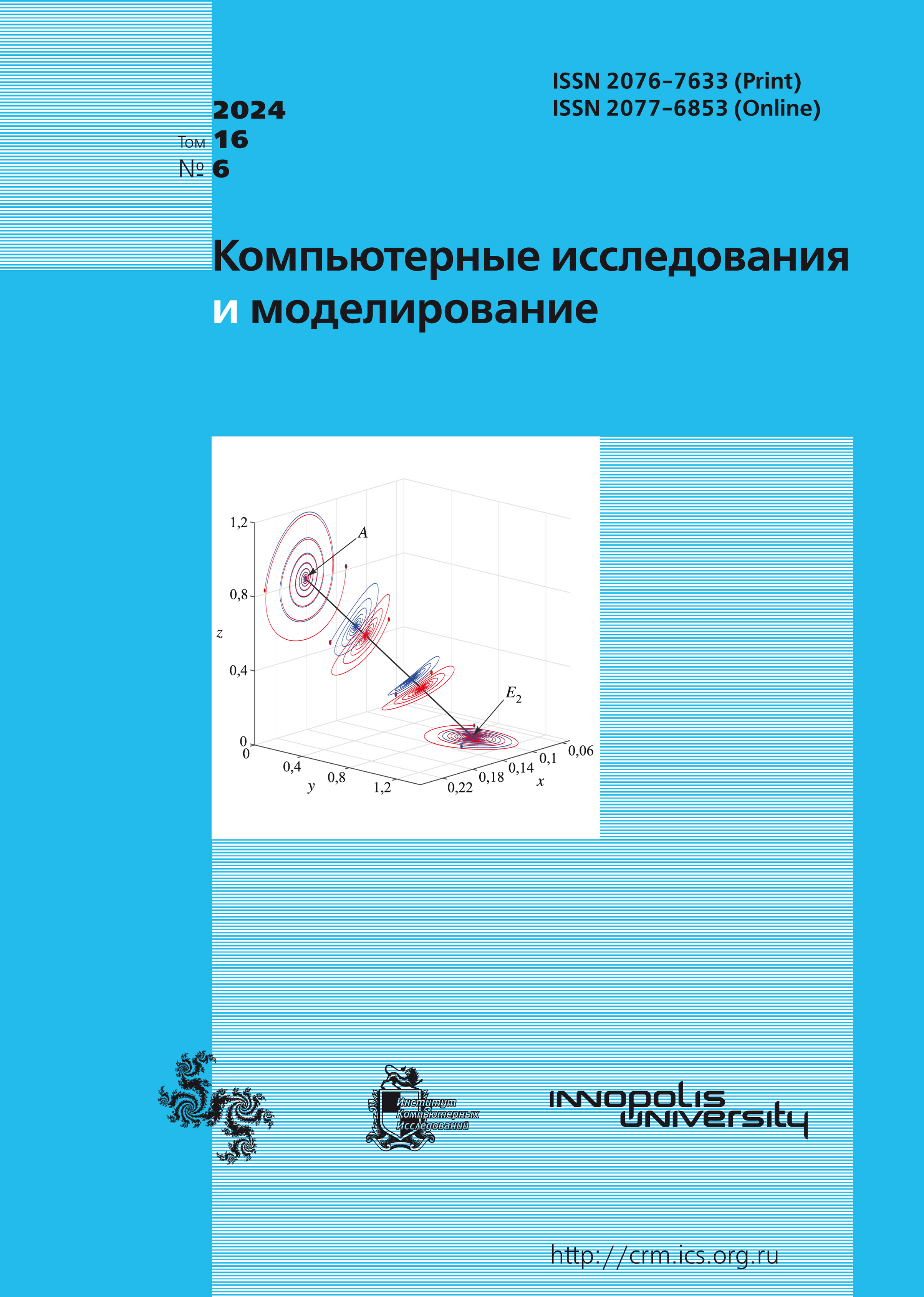All issues
- 2026 Vol. 18
- 2025 Vol. 17
- 2024 Vol. 16
- 2023 Vol. 15
- 2022 Vol. 14
- 2021 Vol. 13
- 2020 Vol. 12
- 2019 Vol. 11
- 2018 Vol. 10
- 2017 Vol. 9
- 2016 Vol. 8
- 2015 Vol. 7
- 2014 Vol. 6
- 2013 Vol. 5
- 2012 Vol. 4
- 2011 Vol. 3
- 2010 Vol. 2
- 2009 Vol. 1
Modeling some scenarios in the “power – society” system concerning migration and changing the number of regions
 pdf (601K)
pdf (601K)
The paper considers an earlier proposed by the author discrete modification of the A. P. Mikhailov “power – society” model. The modification is based on a stochastic cellular automaton, it’s microdynamics being completely different from the c continuous model based on differential equations. However, the macrodynamics of the discrete modification is shown in previous works to be equivalent to one of the continuous model. This is important, but at the same time raises the question why use the discrete model. The answer lies in its flexibility, which allows adding a variety of factors, the consideration of which in a continuous model either leads to a significant increase in computational complexity or is simply impossible.
This paper considers several examples of such applicability expansion of the model, with the help of which a number of applied problems are solved.
One of the modifications of the model takes into account economic ties between regions and municipalities, which could not be studied in the basic model. Computational experiments confirmed the improvement of the socio-economic indicators of the system under the influence of the ties.
The second modification allows internal migration in the system. Using it we studied the socio-economic development of a more prosperous region that attracts migrants.
Next we studied the dynamics of the system while the number of regions and municipalities changes. The negative impact of this process on the socio-economic indicators of the system was shown and possible control was found to overcome this negative impact.
The results of this study, therefore, include both the solution of some applied problems and the demonstration of the broader applicability of the discrete model compared with the continuous one.
Copyright © 2024 Stepantsov M.Y.
Indexed in Scopus
Full-text version of the journal is also available on the web site of the scientific electronic library eLIBRARY.RU
The journal is included in the Russian Science Citation Index
The journal is included in the RSCI
International Interdisciplinary Conference "Mathematics. Computing. Education"






